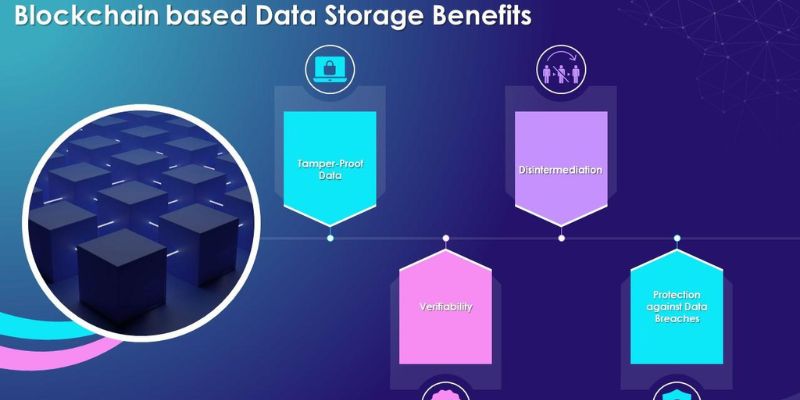
In just a few decades, technological innovation has transformed every aspect of human life. From the invention of the wheel to the latest advances in artificial intelligence, technology has played a crucial role in shaping the modern world. Our lives have become more convenient, productive, and interconnected as a result of these advancements. However, along with its positive effects, technology has also brought about some negative consequences that need to be addressed.
The future of technology holds even more promise, with constant emergence of new technologies. While these innovations may bring significant improvements, it is important not to overlook the risks they may pose and to take measures to mitigate them. In this article, we will explore some of the most important technological developments that will define our world in the coming years, as well as the positive and negative effects of technology on society.
Future of Technology
Artificial Intelligence
Artificial intelligence (AI) is one of the most fascinating developments in modern technology. AI has already made great strides in areas such as voice recognition, image identification, and natural language processing. However, its potential extends far beyond these domains. AI has the power to revolutionize sectors like healthcare, finance, transportation, and even contribute to addressing climate change and extreme poverty.
Internet of Things
The Internet of Things (IoT) refers to the global system of interconnected computing devices that can exchange data and instructions through the internet. This technology has already proven successful in automating homes, optimizing energy usage, and improving transportation. The IoT is expected to become even more pervasive in the years to come.
Augmented and Virtual Reality
Augmented reality (AR) and virtual reality (VR) have gained significant interest in recent years. These technologies aim to overlay digital information onto the physical world, allowing users to interact with it. Applications for AR and VR can be found in entertainment, education, medical treatment, and more. These experiences are expected to become increasingly realistic and immersive.
Blockchain
While blockchain technology is most commonly associated with cryptocurrencies like Bitcoin, its applications extend beyond digital currencies. Blockchain is a distributed ledger that enables secure data storage and transfer. Sectors such as finance, healthcare, and supply chain management can greatly benefit from blockchain technology.
5G Networks
The advent of fifth-generation (5G) mobile networks promises significantly faster and less laggy connectivity compared to the existing 4G networks. 5G networks open up possibilities for autonomous vehicles, smart cities, and telesurgery. However, infrastructural challenges in some regions have slowed down the adoption of 5G networks.
Quantum Computing
Quantum computing applies principles from quantum mechanics to the computation process. It has the potential to solve problems that are currently intractable with classical computing. Quantum computing can be utilized for tasks such as simulating complex chemical reactions and developing novel materials. However, there are still technological hurdles to overcome before it becomes widely embraced.
Biotechnology
Biotechnology refers to the use of biological systems, cells, and organisms in industries and medicine. This field has the potential to revolutionize sectors such as medicine, agriculture, and energy generation. As new treatments and cures are discovered, biotechnology is expected to play an increasingly larger role in people’s lives.
Robotics
Robotics research focuses on creating automated devices capable of performing tasks. Industries like construction, medicine, and transportation can benefit greatly from the use of robots. There is hope for the future of robotics in developing machines with human-like cognitive abilities.
Cloud Computing
Cloud computing involves storing and accessing data on remote servers. This technology has transformed data storage and retrieval. As more programs and services utilize cloud computing, its prominence is projected to grow. For example, cloud computing can power AI programs like voice assistants and image identification services.
Cybersecurity
As technology becomes more prevalent, cybersecurity becomes increasingly important. Cybersecurity involves protecting computers and networks from electronic intrusion. With the rise of cyber threats, safeguarding data and information has become paramount.
Impact of Technology on Society
Positive Impact
- Better Communication
Technological advancements have significantly improved communication. Social media, messaging applications, and video conferencing technology allow people from all over the world to connect and communicate instantly. This has helped maintain relationships, expand social circles, and form communities with shared interests and values.
- Enhanced Information Access
The internet has made previously inaccessible knowledge easily accessible to everyone. People can now gain exposure to new ideas, practices, and perspectives with just a few clicks. This has facilitated self-led learning and the spread of knowledge in vital areas like health, science, and politics.
- Increased Education
Technological advancements have made learning more convenient and productive. E-learning platforms allow students to access educational content from anywhere and study at their own pace. Interactive learning technologies, such as simulations and virtual reality, make education more engaging and practical.
- Efficiency Gains
Technology has enabled various tasks to be completed more quickly and with less waste. Companies can utilize robots for routine activities, saving money and increasing production. This has led to the expansion of businesses, job creation, and economic growth.
Negative Impact
- Reduced Social Engagement
While technology has made communication easier, it has also reduced face-to-face interaction. The proliferation of social media and electronic means of communication has made people less likely to engage in meaningful in-person conversations. This has resulted in feelings of loneliness and isolation, with potential psychological implications.
- Increased Screen Time
Technological advancements have led to increased screen time, which can have negative effects on physical and mental health. Excessive screen usage has been associated with eye fatigue, back pain, and sleep disturbances. Additionally, spending too much time in front of screens can lead to addiction and negatively impact relationships.
- Job Displacement
Automation and technological advancements have led to job losses as machines and software can perform tasks previously done by humans. While these advancements create new opportunities in fields like artificial intelligence and robotics, many people find it challenging to transition into these new roles or struggle to find employment.
- Privacy Issues
With technological advancements, privacy concerns have become more prominent. Personal information is increasingly mined for profit and political gain, raising concerns about security breaches, identity theft, and government surveillance. The data practices of social media platforms have also faced criticism for their impact on privacy.
Conclusion
The future of technology holds immense potential for shaping our world. While there are many positive outcomes from the widespread use of new technologies, there are also negative consequences that need to be addressed. Better communication, increased access to information, improved education, and efficiency gains are just a few of the ways technology has benefited society. However, it is crucial to remain aware of the hazards and challenges that come with technology, such as job displacement and privacy issues. By taking steps to mitigate these risks, we can continue to enjoy the advantages that technology provides.
FAQs
Q: What are some significant technological developments that will define the future?
A: Some of the significant technological developments include artificial intelligence, the Internet of Things, augmented and virtual reality, blockchain, 5G networks, quantum computing, biotechnology, robotics, cloud computing, and cybersecurity.
Q: How has technology impacted communication?
A: Technology has significantly improved communication by enabling instant messaging, social media, and video conferencing. People can now connect with others from around the world, maintain relationships, and form communities with shared interests.
Q: What are some negative effects of technology on society?
A: Some negative effects of technology on society include reduced social engagement, increased screen time leading to physical and mental health issues, job displacement due to automation, and privacy concerns such as data breaches and government surveillance.
Q: What steps can be taken to mitigate the negative impacts of technology?
A: To mitigate the negative impacts of technology, it is important to encourage face-to-face interactions, promote a healthy balance of screen time, provide retraining opportunities for individuals affected by job displacement, and implement strict privacy regulations to protect personal information.



